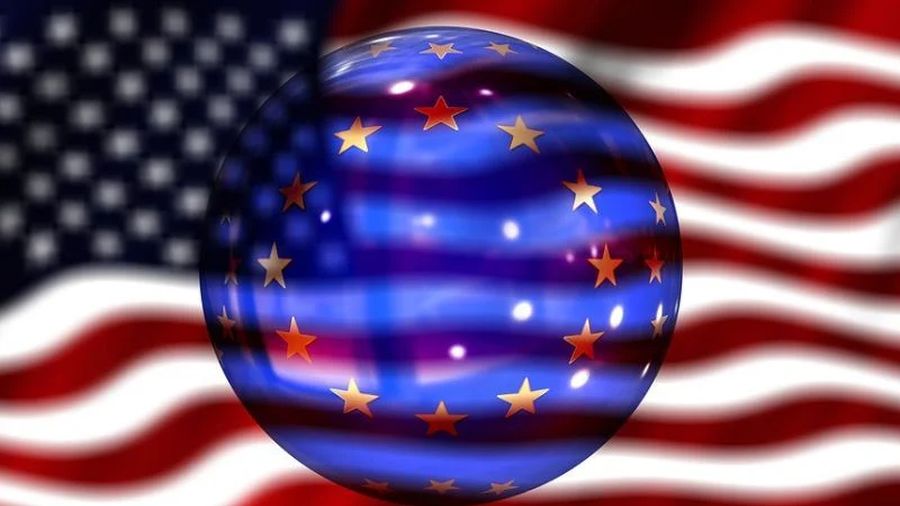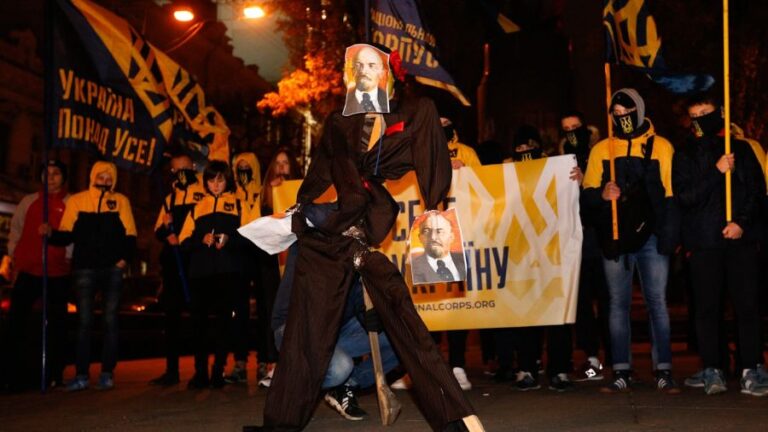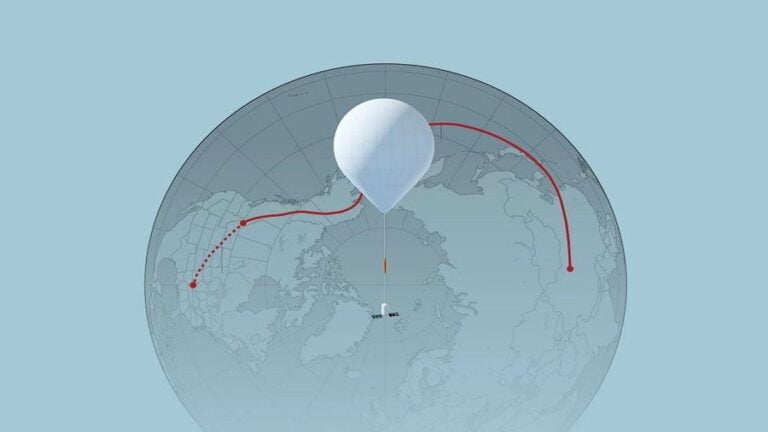US Expert Warns France and Germany Will “Throw the Americans Under the Bus”
US President Joe Biden said after his meeting with German Chancellor Olaf Scholz that he will “end” the Nord Stream 2 gas pipeline from Russia to Europe if Moscow sent troops into Ukraine.
“If Russia invades … there will no longer [be] a Nord Stream 2,” Biden said during a joint press conference with Scholz. “We will bring an end to it.”
When pressed for more details on just exactly how the US can achieve this, Biden could only mutter:
“I promise you, we’ll be able to do it.”
The American president of course found it difficult to answer this question because his country is not involved in the Nord Stream 2 project and has very little influence over it – the only thing Washington can hope for is that sustained pressure on European allies will make them capitulate to their demands.
However, the reality is that Germany, Europe’s most important country alongside France, has its own economic interests that must be served and not compromised for the sake of the US. Berlin has defended its ability to complete the pipeline, despite the fact that the US opposes the project in any way possible. Washington has no interest in the fact that the Nord Stream 2 pipeline is vital for the German economy and industry.
None-the-less, to try and appease Washington, Scholz stressed to journalists that Germany was “absolutely united” and that “we will do the same steps, and they will be very, very hard to Russia.”
This is on the assumption though that Russia will invade Ukraine, something that the Kremlin has continually stressed it has no ambition of doing despite the constant warnings and rhetoric emanating from Washington. Both Berlin and Paris understand that Russia does not want to invade Ukraine and desperately want the manufactured crisis to end.
Brandon Weichert, author of “Winning Space: How America Remains a Superpower” and a former US congressional staffer, said to the Express newspaper this week:
“Paris is hesitant about getting too bogged down in a Russo-American fight over Ukraine for the same reason that Germany is desperate to avoid escalation in the particular fight over Ukraine.”
“Paris, like Berlin, fears the prospects of their own countries becoming frontline states yet again in either a renewed Cold War between Russia and the US or, more frighteningly, an actual war,” he added.
Following talks on Friday in Moscow between Russian and French Presidents Vladimir Putin and Emmanuel Macron, the Financial Times, citing French sources, reported that Russia had “moved” towards de-escalating the situation around Ukraine.
Specifically, the meeting was said to revolve around the withdrawal of Russian troops from Belarus after the end of their exercises in the country. According to sources, this will lead to further meetings and the signing of an agreement on “structured dialogue on collective security.”
Macron had previously proposed a re-format of the European security system to include Moscow in it, but this offer went unanswered. This time, the French leader again noted that it is impossible to normalize the international situation without dialogue with Russia.
“We must protect our European brothers by proposing a new balance capable of preserving their sovereignty and peace. This must be done while respecting Russia and understanding the contemporary traumas of this great people and great nation,” the French president added.
In this way, Macron, despite some differences with Putin, has an immense respect for the Russian leader. Macron, just like his German colleague Scholz, is a realist and understands that discounting Moscow’s interests and concerns is not a realistic prospect if order, stability and peace is to be maintained in Europe, something that the Anglo Alliance (US and UK) are not interested in as they would not be directly affected by a potential continental war.
As Weichert noted, among other reasons, France and Germany are also dependent on Russian energy supplies. Because of this, the two countries do not want to enforce the harsh restrictions that Biden demands.
In the view of the former Congressional official, the two key allies would surely “[throw] the Americans under the bus, which they will because Paris thinks that would weaken America’s unwanted hold over European affairs.”
In this way, the two European powerhouses, ignoring the incessant complaints from Poland and the Baltic states, are themselves deescalating a crisis in Ukraine that Washington and Kiev manufactured seemingly out of nowhere. In addition, although the Europeans are vowing to respond to any Russian invasion of Ukraine, and in this way shows “unity” with the US, they fully understand that Moscow has no plans for such an invasion. For this reason, Germany is completely unwilling to sacrifice its energy and industrial needs for the sake of appeasing Washington’s hostile anti-Russian policies.







